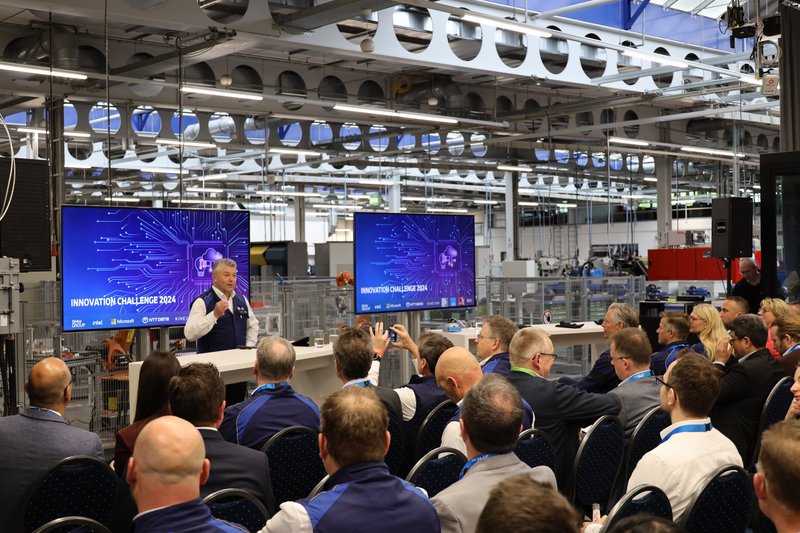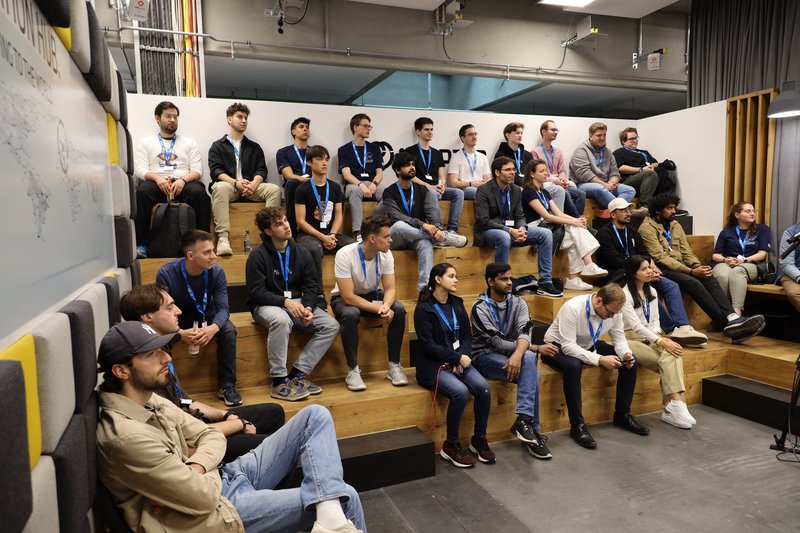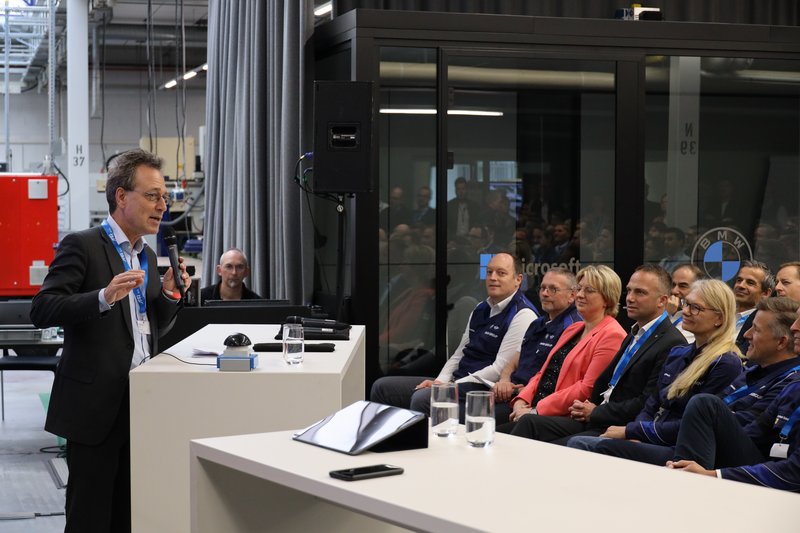"With the Innovation Hub, we at BMW have created a unique field of experimentation that is attracting attention far beyond Dingolfing. It's great to see that a regional ecosystem for digital innovations and their industrialisation is now developing around our InnoHub and the Innovation Challenge," emphasised plant manager Christoph Schröder. Accordingly, the students, divided into twelve interdisciplinary teams, not only competed in the Innovation Hub at the Dingolfing plant like last year, but also at SAR, DE Software and the PULS Technology Centre at Landshut University of Applied Sciences.
Creativity, inspiration and smart use of skills
In order to challenge the students as part of the challenge,various use cases, i.e. problems fromoperational practice, were defined on relevant topics of the factory of the future - referred to at BMW as iFactory- which had to be worked on. For example,dealt with machine learning, the construction of a universal tool forthe painting process and the implementation of a real-time localisation system. With "Connect the region", there was also a usecase with social economy aspects.
Experts from the organising companies and universities were on hand to help the participants with the development and design.Equally important: an environment in which the inventors could develop creatively,relax in between and recharge their batteries. Chill-out areas,camp beds, racing simulators and, of course, suitable cateringwere therefore available for thebreaks to catch their breath and network. Participants were also able to visit aninnovation fair as part of the supporting programme, where the tech partners of the InnovationChallenge presented highlights from the CES, the Mobile World Congressand the Hannover Messe - including holo-lenses andAI-supported optical defect detection on component surfaces.
Alfred Haslbeck, who is responsible for IT at the BMW Group site in Dingolfing and was one of the initiators of the Innovation Challenge, was delighted: "We had around 300 applications, twice as many as last year. This shows that young people from colleges and universities enjoy tackling the challenges of a complex industrial environment. And so this year, too, there are solutions that we can integrate into our processes and workflows as standard." Plant Manager Christoph Schröder was also delighted with "the 60 bright minds who are enriching BMW and the partner companies with their fresh, fresh thinking, their desire for new things and their commitment and knowledge." "Innovations are the lifeblood of companies and the basis for the economic strength of a region like Lower Bavaria," said Schröder.
Winning team impresses with AI-based application
At the end of the 24 hours, the time had come: the twelve teams presented their solutions to the jury made up of representatives from the BMW Group, cooperation partners and professors from the universities, who ultimately selected the winning team. An innovative solution for the use of artificial intelligence to increase safety and efficiency in the workplace, which was developed by two students from Landshut University of Applied Sciences, was particularly convincing. University President Prof. Dr Fritz Pörnbacher was delighted with the students' efforts: "The Innovation Challenge stands for key aspects that are important to Landshut University of Applied Sciences: for networking and cooperation, for the promotion of key future technologies, for commitment to our region and for internationality."
Attractive non-cash prizes and various "One Day @" prizes from the participating companies awaited the tired but happy winners. At the event prizes, the managers from BMW and the tech partners took plenty of time for the winners - the ideal opportunity for the students to build up a network and make important contacts for the future.
Photos: Landshut University of Applied Sciences
(Free for use provided the source is acknowledged)



